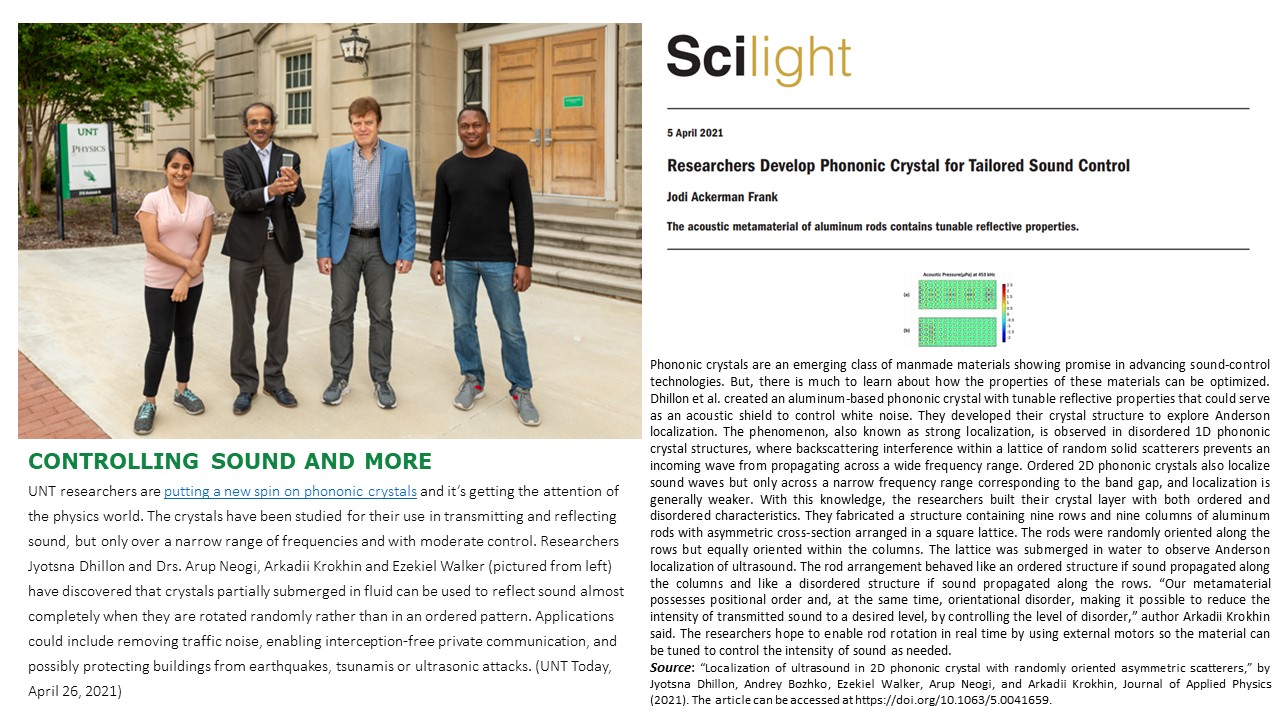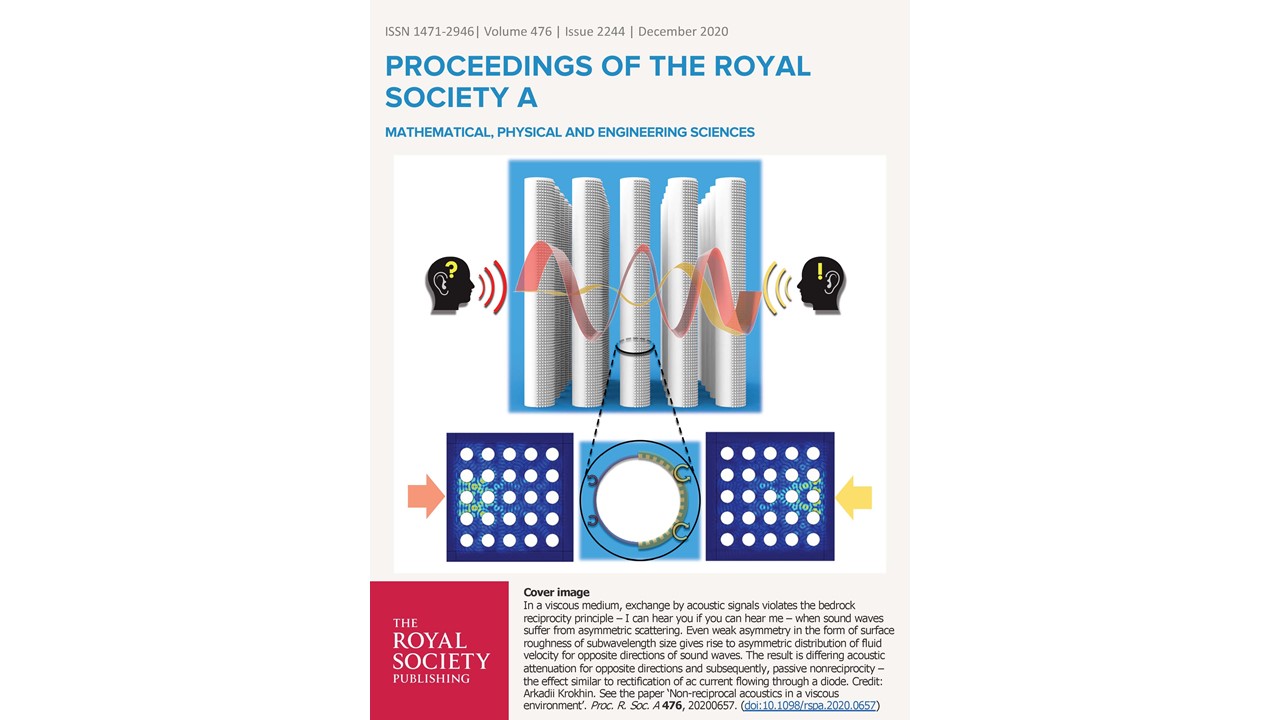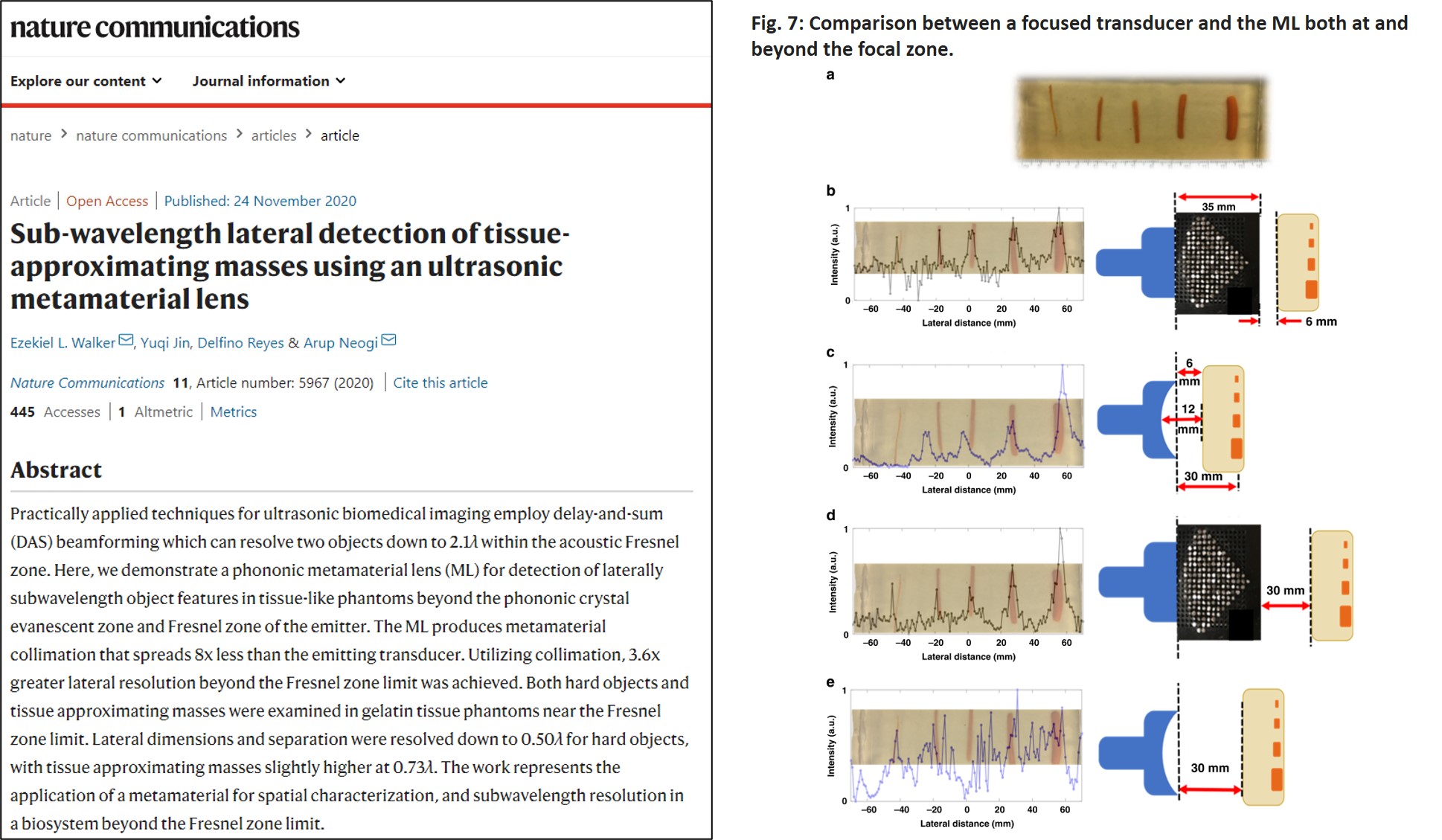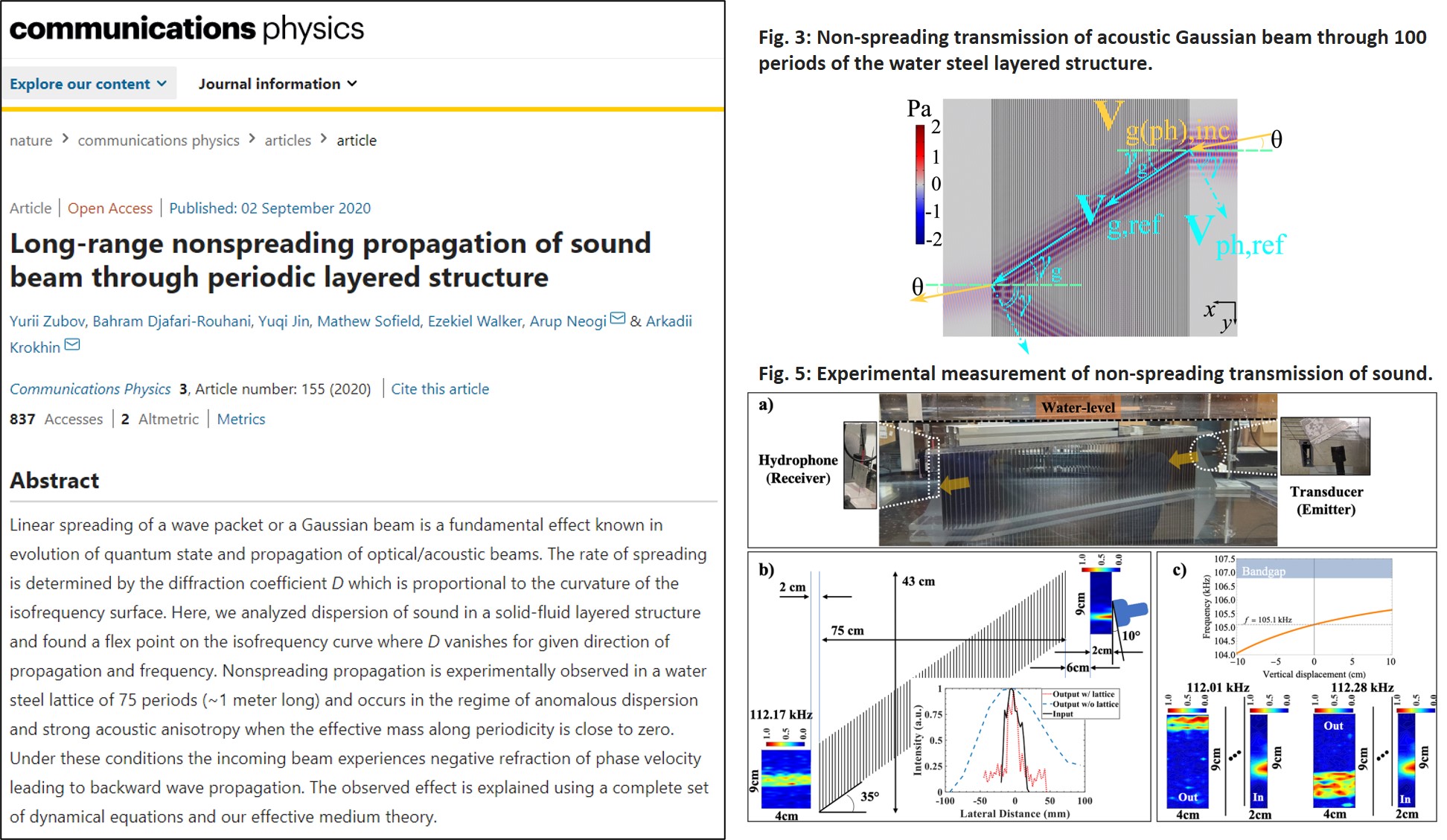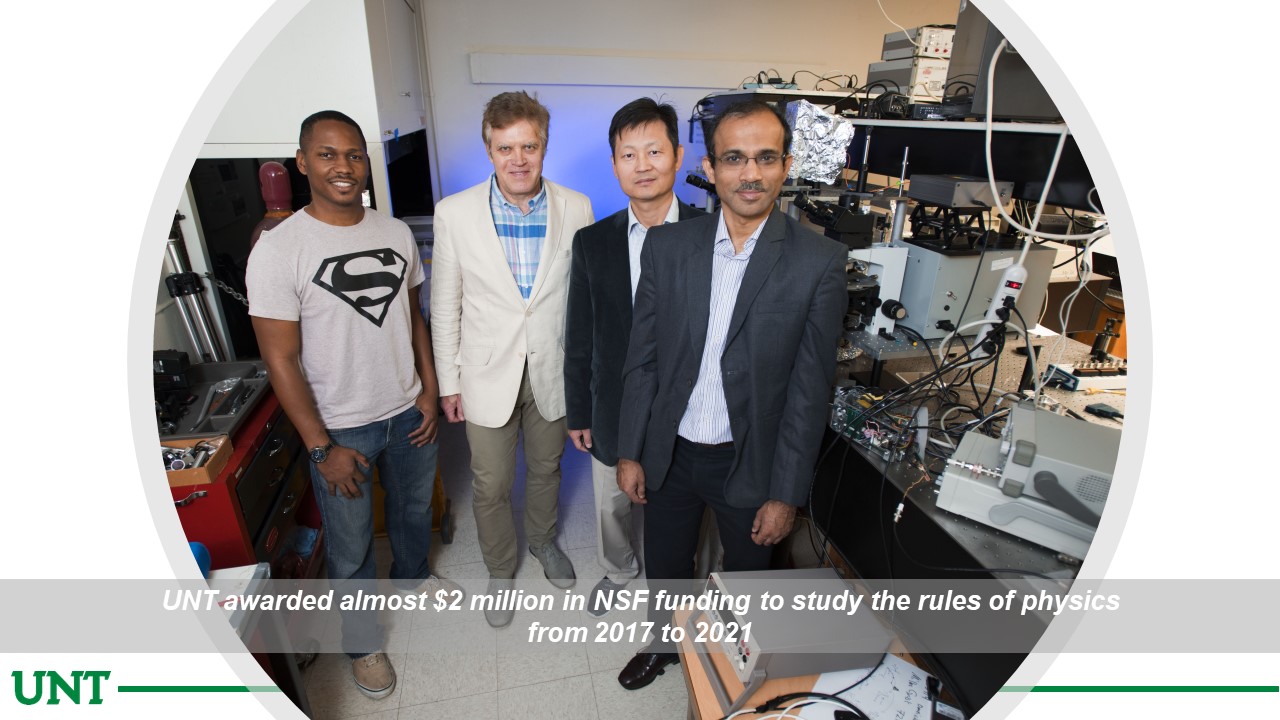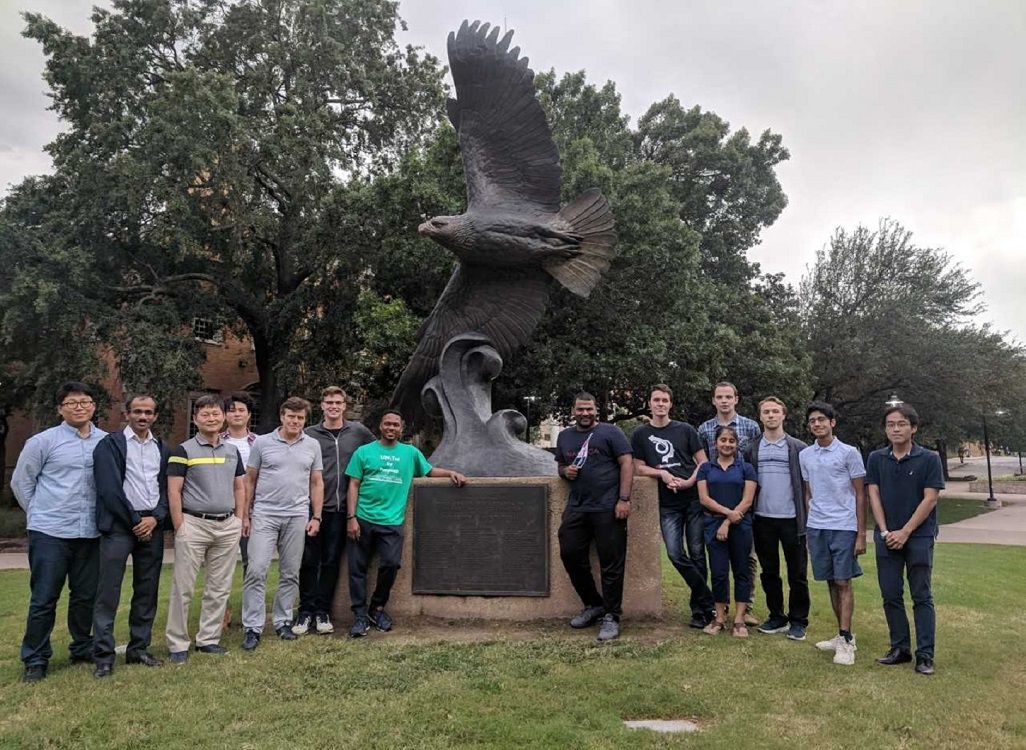EFRI team has investigated non-reciprocal metamaterials that arise in periodic media due to viscosity and engineer acoustic wave propagation through it. For light and sound waves, nature ideally follows the reciprocity rule that reversing a wave propagation will return that wave to its original state. This phenomenon is similar to the “undo” action on a computer or device, and is fundamental to the behavior of waves used in conventional communication and our general perception of reality. However, there is a select class of specially designed materials that violate these behaviors called non-reciprocal metamaterials that break reciprocity symmetry. In these materials, the “undo” or reverse action does not ideally return the wave to its initial state. Deeper understanding of non-reciprocity will enhance our knowledge of general acoustics and impact applications like architecture, secure communications, vibration isolation, medical diagnostics and therapeutics. Active phononic structures including tunable lens, filters and acoustic diodes will be designed. Additive manufacturing and micro-electro-mechanical techniques will be utilized to realize active phononic structures. Local high school students, graduates, post-docs, and undergraduates from physics, mechanical and electrical engineering, and material science have involved in this project. We have hosted research experience and mentoring (EFRI-REM) that offered through this research project to the students and teachers. This project also includes close collaboration with the industry for student training and commercialization of the outcome of the research activities.
